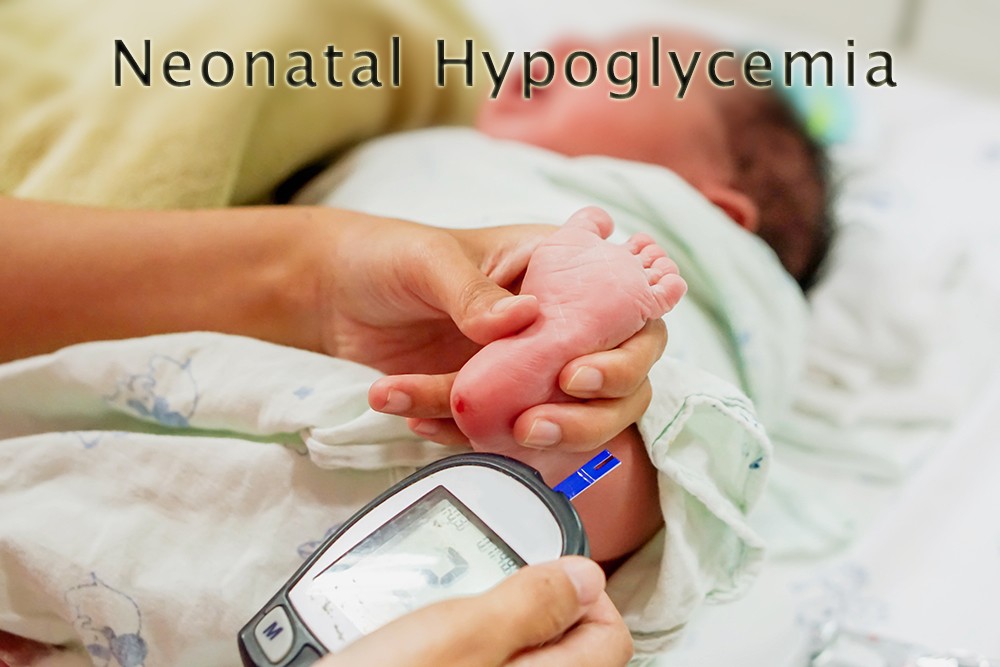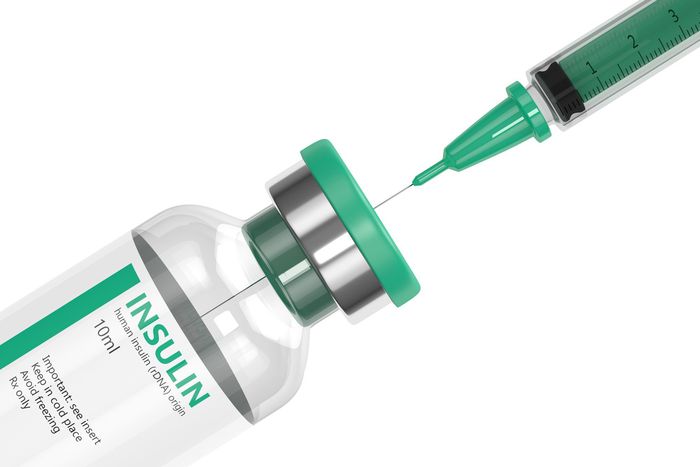Last updated on September 28th, 2022
Neonatal hypoglycemia or glucose derangement in newborn babies is nothing new or unusual. In many cases, neonatal hypoglycemia remains for a few hours to 3-4 days in newborn babies. However, once they start breastfeeding, their blood sugar levels come to the normal range. Breast milk helps regulate the blood sugar levels in infants and nourishes them to fight several diseases. If neonatal hypoglycemia is not detected and treated early, it can lead to brain damage. You can prevent hypoglycemia in a newborn with the suggested preventive measures.
Hypoglycemia is a condition of low blood glucose levels in the body. Not only the adults but the newborns are also at risk of developing hypoglycemia. Hypoglycemia or low blood sugar levels can occur due to several reasons and leads to several health issues. In babies, hypoglycemia impairs growth, and their brain cells also start to die. It can even cause neonatal brain injury. It is not difficult to recognize hypoglycemia in babies and usually treatable.

What is Neonatal Hypoglycemia?
Neonatal hypoglycemia is a condition when the baby’s blood sugar levels drop very low within a few days of birth. It is a kind of metabolic problem in newborns. Glucose is a crucial source of energy for the development of the brain in newborn babies. The baby’s brain does not receive a sufficient amount of glucose when a newborn develops hypoglycemia which does not get treatment on time. It causes the brain cells to die and leads to permanent brain damage.

Causes of Hypoglycemia in Newborns
The causes of hypoglycemia in the newborn are:
- Defects from birth
- Baby not receiving enough oxygen right after the birth
- Poorly controlled diabetes in the mother
- Mother having poor or lack of nutrition during pregnancy
- Incompatibility of blood types between the mother and the newborn
- Hormonal deficiencies or congenital metabolic diseases
- Infection due to the interaction of diabetes medication
- Production of more insulin in the blood of newborn due to the pancreatic tumor, hypothermia, polycythemia, or other reason
Also Read: Jardiance Tablet – Know Its Uses, Benefits, Interaction, Precautions, and Side Effects
Long-Term Effects of Neonatal Hypoglycemia
Summary
The long-term effects of neonatal hypoglycemia are a result of delays in timely treatment. The newborn may have to live with the vision problem for a lifetime. Some other long-term effects of neonatal hypoglycemia are neuropsychiatric disorder, brain damage, cerebral palsy, development disabilities, learning disabilities, and seizures.
When neonatal hypoglycemia does not come under the early diagnosis or a baby does not get the treatment for a long time, it can cause several long-term effects. The long-term injuries due to neonatal hypoglycemia include:
- Vision problems: Low blood sugar levels can cause blurred vision or double vision in the newborn. Due to hypoglycemia, the brain cells die, and the nerve connecting the brain and the eye may not work effectively. Thus, it can cause vision problems in the long term.
- Neuropsychiatry disorder: Neonatal hypoglycemia leads to Neuropsychiatry disorder. It is the medical conditions that involve neurology and psychiatry in newborns. It impacts brain function and emotions.
- Brain damage: When the brain cells do not receive glucose at birth, they start to die. It causes brain damage and leads to mental disorders in children.
- Cerebral Palsy: It is a motor disability in children. The abnormality or damage in the part of the brain that controls the movement results in cerebral palsy. It causes musculoskeletal conditions that lead to bone and joints deformities.
- Leaning and development disabilities: Untreated hypoglycemia in newborns can lead to Learning and development disabilities. The learning disabilities include difficulty in learning, sorting, storing information, speaking, reading, writing, etc. The development disabilities prevent the newborn from reaching the developmental milestones at the expected time.
- Seizure: The abnormal electrical discharges in the brain due to chemical imbalance and brain damage causes neonatal seizures. It is one of the problems due to neonatal hypoglycemia. Delay in the identification of neonatal seizures can result in permanent damage to the baby’s brain.
Also Read: Reverse Diabetes With Best Program of India
Regular Blood Sugar Check for Newborns
Generally, healthy full-term babies do not need to blood sugar checks. Their bodies have enough glucose stored in their liver for energy. It lasts until the newborn starts break feeding well. Some babies who need routine blood sugar checks are:
- Babies who are small or large for their gestational age
- Babies with rare medical conditions
- Premature babies born more than three weeks before their expected due date
- Babies whose mothers have either pre-existing diabetes or develop gestational diabetes
- Monitoring blood sugar levels in those levels helps in the diagnosis of hypoglycemia and immediate treatment.
Blood sugar levels of less than 30 mg/dL in the first 24-hours of birth and less than 45 mg/dL after that for the next three to four days show that your baby has hypoglycemia. Checking Plasma glucose also helps in diagnosing neonatal hypoglycemia. There is a need to do the estimation based on the underlying cause:
- Preterm and a lesser gestational age infant: 1, 6, 12, 24, 36, 48 hours and third and fourth day.
- Infant of a diabetic mother: 1, 2, 4, and 6 hours of life.
- Infants with erythroblastosis fetalis: after the exchange of transfusion with blood intermixed with citrate phosphate dextrose.
Also Read: Is watermelon good for diabetics?
Signs and Symptoms of Neonatal Hypoglycemia
Sometimes, the newborns do not show any signs and symptoms of neonatal hypoglycemia. Routine blood test after birth helps in diagnosing their hypoglycemia. However, some signs and symptoms help in detecting neonatal hypoglycemia and blood test confirms it. Following are the signs and symptoms of hypoglycemia:
- Breathing problems
- Poor feeding or vomiting
- Tremor, shaking, seizure or sweating
- Pale skin or bluish-colored skin
- Irritability
- Floppy muscle
- Hypothermia
- Low birth weight
If the symptoms of neonatal hypoglycemia remain untreated for a long time, there can be brain damage that may lead to a temporary cessation of breathing.
Also Read: Burning Feet – Causes, Diagnosis, Treatment and Home Remedies
Treatment of Hypoglycemia in Newborns
Summary
Early diagnosis of hypoglycemia can help to treat hypoglycemia in newborn babies. The treatment includes feeding the breast milk and drug treatment. Breast milk is a boon for newborn babies. It contains many enzymes and nutrients that help the babies to fight several diseases like hypoglycemia. If the baby is unable to drink breast milk, drug treatments help treat hypoglycemia.
Hypoglycemia is treatable in newborns through following ways:
Breast Milk Helps to Treat Hypoglycemia in Newborns
Within a week after the birth, the baby’s body can store glucose in the liver. Therefore, it helps the baby to cope with the transition from the womb to the world. Mother’s first milk is a rich and creamy substance called Colostrum. It has special enzymes that help your baby release the stored glucose from the liver. The liver of premature babies does not get enough chance to store glucose. They are, therefore, more prone to hypoglycemia. Breast milk helps in regulating blood sugar and treat hypoglycemia.
Drug Treatment for Hypoglycemia in Newborns
The early treatment of low blood sugar levels in newborns prevents the complications of neurologic damage. Feeding the newborn with breast milk or formula is encouraged to avoid hypoglycemia. The doctors use a nasogastric tube in newborns who are unable to drink breast milk or formula. Many newborns cannot protect their airways or are unable to drink milk. Drugs like dextrose, diazoxide, glucagon, and octreotide are administered to them with the help of IV, nasogastric tube, intramuscular, or intraosseous routes.
Also Read: How to Lower Blood Glucose Levels
Prevention of Hypoglycemia in Newborns
It is essential to recognize infants at risk of hypoglycemia. You should also initial the strategies from birth to prevent hypoglycemia. Some other preventive measures include:
- Early breastfeeding.
- Skin to skin contact within the first hour of birth.
- Frequent breastfeeding at least after every 3 hours and assess the quantity of breastfeeds.
- Ongoing skin contact with the mother to control the body temperature of the baby.
- Control the blood sugar levels during the pregnancy.
- Give expressed breast milk to the baby unless the baby cannot take anything orally for some medical conditions.
With the mentioned preventive measures, you can prevent hypoglycemia in newborns. Pregnant women can lessen the chances of hypoglycemia in babies by the following tips:
- Take good nutritional and medical care of yourself throughout the pregnancy.
- Maintain control of your blood sugar levels before and during pregnancy.
- Avoid high doses of intravenous glucose sugar solution during labor unless it is medically necessary.
- Newborn stress can deplete a baby’s glucose stores. Thus, you should do whatever can reduce your baby’s stress during labor and delivery.
Also Read: Diabetes Diet Chart Indian
Treatment to Manage Blood Sugar Levels in Pregnant Women
Summary
One of the most effective preventive measures for neonatal hypoglycemia is that pregnant women should control their blood sugar levels during pregnancy. It helps them to reduce the risk of hypoglycemia in the newborn and developing other related complications. Routine monitoring of gestational diabetes, lifestyle changes, and medications are the measures to control diabetes for pregnant women.
Some ways help in managing the blood sugar levels in women planning their pregnancy or already pregnant. It reduces the risk of hypoglycemia in newborn babies. Here are some of those measures:
- Routine screening for gestational diabetes: Pregnant women not having diabetes should take the routine screening for gestational diabetes. It helps them in the early detection of diabetes during pregnancy to avoid further complications. The screening for gestational diabetes includes a follow-up glucose tolerance test and an initial glucose challenge test.
- Lifestyle changes: Diabetes is a lifestyle disorder. Therefore, lifestyle changes before and during pregnancy help in maintaining healthy blood glucose levels in the body. Lifestyle changes include what you eat and how much you move. Try including lots of fiber and foods with a low glycaemic index to keep the blood sugar levels in control. Pregnant women should also stay active to manage their blood glucose levels. Regular exercise, walking, and some physical activities also help in relieving common discomforts of pregnancy.
- Medication: If the diet and exercise are not enough to manage your blood sugar levels, pregnant women may need insulin shots or diabetes medications to manage diabetes. Some doctors prescribe oral medications, whereas others believe injectable insulin safe and effective for controlling diabetes before and during pregnancy. Therefore, women with pre-existing diabetes should consult with a doctor before planning their pregnancy.
Also Read: Low Sugar and Pregnancy Risks Associated With Such a Condition
FAQs:
Where do babies get the glucose?
Babies in the womb get their glucose through the placenta and umbilical cord. Some of the glucose gets stored in the liver while the baby uses some glucose for energy. The baby uses the stored glucose for the first few days after birth to keep the blood glucose levels normal until the baby starts feeding the breast milk. Breast milk gets established by the third day of the baby’s birth and becomes the primary source of glucose for the baby.
Why is hypoglycemia dangerous for newborns?
When a newborn has low blood glucose levels from birth that lasts for several hours, the newborn can develop several health problems. Along with this, the newborn may grow with long-term learning and development problems. It may also affect their cognitive ability that can make their living difficult for a lifetime. Therefore, consult your doctor immediately if your newborn is at risk of developing hypoglycemia.
Can I prevent hypoglycemia in my newborn?
Well, there is no specific precautionary measure that helps in preventing hypoglycemia in the newborn. The healthcare providers need to carefully watch the growth and health of the baby with risk factors. Mothers with diabetes should also keep their blood sugar levels in the normal range throughout their pregnancy to lower the risk of hypoglycemia in the newborn baby.
Is hypoglycemia in newborn babies treatable?
A simple blood sugar test helps in the diagnosis of hypoglycemia or low blood sugar in babies. Their treatment depends upon their overall health and gestational age. The mixture of glucose and water, or formula as early feeding increases the blood glucose levels in the newborn. Glucose can be administered through Intravenous infusion in newborn babies to bring their blood sugar levels to the normal range. Monitoring the blood sugar levels regularly during the treatment helps to know how the baby’s body responds to the treatment.
Can the newborn develop hypoglycemia?
Yes. There are chances that a newborn may develop hypoglycemia. A baby is at the risk of developing hypoglycemia due to one or a combination of reasons. The most common cause for hypoglycemia is that if the mother has diabetes. The other reasons include the insufficient supply of glucose, low glycogen levels, poor mechanism of glucose production in the body, or excessive production of insulin that results in more utilization of body glucose.
References:
- https://medlineplus.gov/ency/article/007306.htm
- https://www.caringforkids.cps.ca/handouts/pregnancy-and-babies/blood_glucose_in_newborn_babies
- https://www.stanfordchildrens.org/en/topic/default?id=hypoglycemia-in-the-newborn-90-P01961
- https://www.medindia.net/patients/patientinfo/neonatal-hypoglycemia.htm
- https://ibconline.ca/information-sheets/hypoglycaemia-of-the-newborn-low-blood-sugar/
Last Updated on by Dr. Damanjit Duggal
Disclaimer
This site provides educational content; however, it is not a substitute for professional medical guidance. Readers should consult their healthcare professional for personalised guidance. We work hard to provide accurate and helpful information. Your well-being is important to us, and we value your feedback. To learn more, visit our editorial policy page for details on our content guidelines and the content creation process.

 English
English












